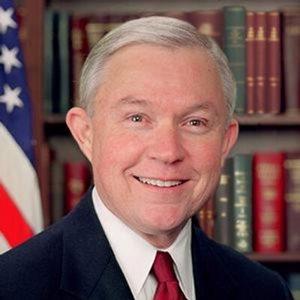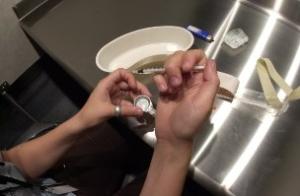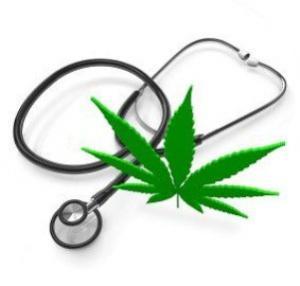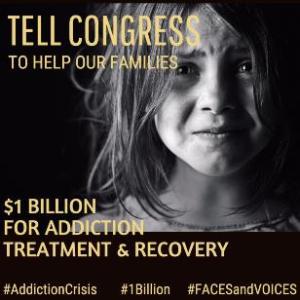Barack Obama has already commuted the sentences of more prisoners than the last 11 presidents combined. But there is still a backlog of thousands, and time is running out.
Donald Trump's older brother, Freddy Jr., died young from booze. Will that make Trump more or less sympathetic to progressive drug policies?
The elections are over and the legislative season is yet to begin, so things are pretty quiet on the medical marijuana front. Still, here are a couple of tidbits.
The president continues to exercise his commutation power on behalf of drug war prisoners, the Florida face-biting killer was not on any new psychoactive substances, Montana activists want their medical marijuana program to restart now, not later, and more.
Recovery advocates have organized a call-in to pressure Congress to fund the Comprehensive Addiction and Recovery Act, Minnesota may tighten up on opioid prescribing, South Africa advances on medical marijuana, and more.
Some California pot shops open their doors to all adults, some California pot defendants are starting to walk free, DC-based activists turn their ire on Trump attorney general nominee Jeff Sessions, Oklahoma (!) defelonizes drug possession, and more.
Scholars, advocates, and a US congressman are calling on Obama to ramp up the commutation process in the final weeks of his term, the CDC issues a report calling for expanded syringe exchange, Maryland moves to address racial diversity (or the lack thereof) in the medical marijuana business, and more.
On his way out of office, President Obama makes his most pro-legalization remarks yet, the FDA gives a green light for Phase 3 MDMA clinical trials, Bolivia ignores UN anti-drug treaties and signs an agreement to export coca to Ecuador, and more.
New studies suggest psilocybin could help terminal patients deal with their fears, the Ohio legislature prepares to pass asset forfeiture reform, and more.
A battle over safe injection sites looms in San Francisco, California could score a billion bucks a year in pot taxes, kratom gets massive support during the DEA's public comment period on its proposed ban, and more.
President Obama has commuted the sentences of more than a thousand federal drug war prisoners, but thousands more have applications in the pipeline. With an incoming Trump administration exceedingly unlikely to act on those petitions, scholars, activists, and at least one US congressman are calling on Obama to expedite clemency efforts while he still can.

Obama still has work to do on sentence commutations. (whitehouse.gov)
In a
Tuesday letter, more than 50 scholars and advocates, including Van Jones and performer John Legend, as well as representatives from the NAACP and the Southern Center for Human Rights, not only called on Obama to ramp up the pace of commutations, but also to consider granting clemency to entire categories of drug war prisoners without case-by-case review.
In a 2014 Justice Department move, the Obama administration called on prisoners still doing time for offenses whose sentences were reduced under the 2010 Fair Sentencing Act to seek sentence cuts and set out criteria spelling out who was eligible. While thousands have applied, a strict vetting process and problems in the Office of the Pardons Attorney means that thousands of clemency requests have yet to be acted on.
Time is too tight to just continue as before, the advocates said, especially given the "law and order" proclivities of the next administration.
"While your administration continues to review individual petitions, we urge you to also determine that nonviolent offenders in certain extremely low-risk categories either deserve expedited review or should be granted clemency absent an individualized review," the group wrote.
"We do not know whether the next president will support clemency efforts or criminal justice reform," the letter concluded. "But we do know that until January 20, you alone have the power to deliver both mercy and justice to those who deserve it."
The group suggested that instead of a time-consuming individualized assessment of inmates' prison behavior, the administration use "prison placement (to a minimum security camp or a low- or medium-security facility) as a surrogate for how an individual has behaved in prison" in order to speed up the process. Another suggestion was to grant clemency to those labeled "career offenders" based solely on drug convictions. And the group suggested that Obama need not "commute entire sentences," but could instead provide partial "tiered relief" to reduce some sentences.
The scholars and advocates weren't the only ones putting Obama on notice that the clock is ticking. US Rep. Steve Cohen (D-TN), the ranking member of the House Judiciary Committee Subcommittee on the Constitution and Civil Justice also sent the president a Tuesday letter urging expedited action on commutations.
"I would urge you to summon the maximum manpower at your disposal to vet commutations and pardons so that as many sentencing wrongs as possible may be corrected as thousands of incarcerated Americans who are serving unjust sentences may receive justice," wrote Cohen.
While much of the attention has been focused on people sentenced to decades in prison over small amounts of crack cocaine -- an injustice only partially redressed in the Fair Sentencing Act -- Cohen also recently urged Obama not to forget marijuana prisoners.
"President Obama should be commuting the prison sentences of those serving time for nonviolent marijuana-related convictions," said Cohen. "Medical marijuana is now legal in 28 states as well as the District of Columbia, and more than 63 million Americans live in states that have now approved recreational marijuana. The President should increase clemency review staff and work overtime to free as many of these individuals as possible before he leaves office. Every day that someone continues to serve an unjust sentence is a day justice is denied. As Dr. Martin Luther King, Jr. so rightly noted, 'Justice too long delayed is justice denied.'"
The clock is ticking.
back to top
This article was produced in collaboration with AlterNet and first appeared here.
As incoming president, Donald Trump will be, among other things, the man in charge of the nation's drug policy. Whether he takes a hand-on, direct approach to policy-making or whether he delegates decision-making authority on drug matters to subordinates -- think Attorney General Jeff Sessions and shudder -- the buck ultimately stops with Donald.

Booze did in older brother Freddy, Jr. (Creative Commons/Wikimedia)
What a Trump administration will do with states that have legalized marijuana is a huge burning question, but the drug policy horizon extends well beyond weed. The Obama administration has championed federal drug sentencing reform, and the president is now commuting the sentences of dozens of drug offenders each week as the clock ticks down on his tenure. Will Trump reverse course?
There's also a huge cry for drug treatment in response to increasing heroin and prescription opioid use. Will a Trump administration be sympathetic? And what about harm reduction -- needle exchanges, supervised consumption sites, and the like? Do such programs have a future under Trump?
The short answer is: Who knows? Trump is proving day by day that how he governs will not necessarily have much correlation with anything he said on the campaign trail. And, as with his approach to many policy areas, what he has said about drugs, both during the campaign and in his earlier life, sounds both spur-of-the-moment and self-contradictory.
But Trump is not just a rather unpredictable president-elect. He's also a person with his own personal and family history, and that history includes a close encounter with substance abuse that sheds some light on his attitudes towards drugs and may influence his drug policy decision-making.
Donald Trump's older brother, and his overbearing father's namesake, "Freddy, Jr." was a full-blown alcoholic by his mid-20s (and Donald's teens) and drank himself into an early grave at the age of 43 in 1981. Freddy wasn't ready to take over the family business and instead became a fun-loving airline pilot, but his descent into the bottle had a traumatic -- and lasting -- impact on his little brother.

Trump says Freddy's alcoholism turned him into teetotaler. (Creative Commons/Gage Skidmore)
"I learned a lot from my brother Fred's death," Trump told
Esquire in a
2004 interview. "He was a great-looking guy. He had the best personality. He had everything. But he had a problem with alcohol and cigarettes. He knew he had the problem, and it's a tough problem to have. He was ten years older than me, and he would always tell me not to drink or smoke. And to this day I've never had a cigarette. I've never had a glass of alcohol. I won't even drink a cup of coffee. I just stay away from those things because he had such a tremendous problem. Fred did me a great favor. It's one of the greatest favors anyone's ever done for me," he recalled.
Trump's experience with his brother turned him into a teetotaler, although he does swill Diet Coke instead. And he admits to one other "vice" in revealing terms. In a 2007 video, he said that hot women are his "alcoholism," especially "beautiful" teens.
"I never understood why people don't go after the alcohol companies like they did the tobacco companies," he continued in the Esquire interview. "Alcohol is a much worse problem than cigarettes."
Still, the free-wheeling marketeer wasn't ready to reinstate Prohibition because of Freddy, and that attitude extended to drugs. In the early 1990s, Trump reportedly talked about drug legalization, calling drug law enforcement "a joke" and saying "You have to legalize drugs to win that war. You have to take the profits away from these drug czars."
But Trump was singing a different tune on the campaign trail, especially in New Hampshire, which has been hit hard by the opioid wave. In a November 2015 interview with ABC News' Martha Raddatz, Trump backtracked.
"Well, I did not think about it," he confessed. "I said it's something that should be studied and maybe should continue to be studied. But it's not something I'd be willing to do right now. I think it's something that I've always said maybe it has to be looked at because we do such a poor job of policing. We don't want to build walls. We don't want to do anything. And if you're not going to want to do the policing, you're going to have to start thinking about other alternatives. But it's not something that I would want to do."

Will this be Trump's solution to the nation's drug problems? (nadcp.org)
That suggests that he thinks if we just enforce drug laws more vigorously, we could solve the problem. But it also suggests that he hasn't really been paying attention to the last 40 years of the war on drugs. Still, he has also said that marijuana legalization "
should be a state issue, state by state," suggesting that he will not try to roll back pot legalization in the eight states that have now voted to free the weed.
And in an October 15 speech in New Hampshire, where he made his most coherent remarks about drug policy, he was mainly about building the wall on the Mexican border to stop the flow of heroin from Mexico. But in that speech, he at least sketched the outlines of response that included increased access to the overdose reversal drug naloxone, increased reliance on drug courts, and increased access to the silver bullet of drug addiction, "abuse-deterring drugs." But he didn't say anything about how much he would be willing to spend on treatment and recovery (Hillary Clinton rolled out a $10 billion plan), nor how he would pay for it.
As with many policy areas, Trump's positions on drug policy are murky, seemingly only half-developed, and full of potential contradictions. Will having a teetotaler with a dead alcoholic brother in the White House make for better drug policies or an administration more understanding of the travails of addiction? As with many things Trump, we shall have to wait for his actions. Nominating drug war hardliners like Sen. Jeff Sessions (R-AL) to head the Justice Department and giving Vice President-elect Mike Pence props for enacting mandatory minimum drug sentences aren't good omens, though.
back to top
The elections are over and the legislative season is yet to begin, so things are pretty quiet on the medical marijuana front. Still, here are a couple of tidbits.
MarylandOn Monday, the Maryland Cannabis Commission announced that it is hiring a consultant to advise it on steps it can take to improve racial diversity in the nascent industry. The consultant will decide whether a study can be conducted to determine whether minorities have been unfairly excluded. If such a finding is made, that would allow the state to consider race when awarding medical marijuana licenses.
Montana
Last Wednesday, activists filed suit to force early action on patient cards. In the wake of last week's vote to reinstate the state's medical marijuana program, the Montana Cannabis Industry Association has filed a lawsuit seeking to force the Department of Health and Human Services to immediately begin processing and issuing medical marijuana cards. The language of the ballot measure means the state has until next summer to act, but the MCIA doesn't want to dally.
[For extensive information about the medical marijuana debate, presented in a neutral format, visit MedicalMarijuana.ProCon.org.]
back to top
The president continues to exercise his commutation power on behalf of drug war prisoners, the Florida face-biting killer was not on any new psychoactive substances, Montana activists want their medical marijuana program to restart now, not later, and more.

Obama meets with prisoners at the El Reno, Oklahoma, federal detention facility. (whitehouse.gov)
Montana Activists File Suit to Force Early Action on Patient Cards. In the wake of last week's vote to reinstate the state's medical marijuana program, the Montana Cannabis Industry Association has filed a lawsuit seeking to force the Department of Health and Human Services to immediately begin processing and issuing medical marijuana cards. The language of the ballot measure means the state has until next summer to act, but the MCIA doesn't want to dally.
New Psychoactive Substances
Florida Face-Biting Killer Wasn't on Bath Salts, Flakka. Austin Harrouff, the Florida man charged in the face-biting slaying of a neighbor couple was not under the influence of new psychoactive substances, an autopsy report released Wednesday revealed. Early press and law enforcement commentary had suggested Harrouff was high on bath salts (methcathinone) or flakka (alpha-PVP), but the autopsy revealed only prescription medications and a "minimal" amount of THC in his system. "Austin is struggling with severe mental illness and the judicial process will bear all of this out in due time," his attorney, Nellie King said.
Sentencing
Obama Announces More Commutations, Total Now Over a Thousand. President Obama Wednesday announced that he was commuting the sentences of 79 more drug offenders sentenced under draconian drug laws dating back to the 1980s. That brings the total of commutations under Obama to more than one thousand, which is more than the list 11 presidents combined. Thousands more commutations requests filed in response to an Obama administration call in 2014 remain pending as the clock ticks down on Obama's time in office.
International
Cayman Islands Legalizes CBD Cannabis Oil. Gov. Helen Kilpatrick last week signed into law legislation allowing for the use of CBD cannabis oil in the island nation. The oil can be used for the treatment of conditions including epilepsy and cancer and as a pain reliever for arthritis symptoms. The law does not allow for marijuana to be grown in the country, but the legislature last month passed a separate law allowing for the importation of CBD cannabis oil.
back to top
Recovery advocates have organized a call-in to pressure Congress to fund the Comprehensive Addiction and Recovery Act, Minnesota may tighten up on opioid prescribing, South Africa advances on medical marijuana, and more.
MarijuanaMove Underway to Get Pot Deliveries in Washington State. Officials in Seattle are working on a draft bill to legalize marijuana delivery services. A similar effort failed in the last legislative session. "As Pete and the Mayor said last January, we support legislation allowing local jurisdictions to opt in to legal, regulated marijuana delivery," said Deputy City Attorney John Schochet, referring to City Attorney Pete Holmes. "We are actively working with the Mayor's office and stakeholders to craft legislation that would allow this."
Heroin and Prescription Opioids
Recovery Advocates Urge Calling Congress on Monday to Get $1 Billion to Address the Opioid Epidemic. The recovery community is urging its members and friends to call Congress Monday to urge it to come up with money to fund the Comprehensive Addiction and Recovery Act (CARA), which passed Congress this past summer. "We, the 95 member organizations of the Association of Recovery Community Organizations (ARCO) at Faces & Voices of Recovery, urge Congress to authorize $1 billion to fight the opiate addiction crisis. We are on the ground in urban and rural communities across the nation fighting this epidemic and we see first-hand the devastation addiction causes to individuals, their children and families, and communities. Our work brings hope to solving this crisis by helping people find and maintain long-term recovery and rebuild their lives." The CARA would increase access to naloxone, provide increased treatment resources for prisoners and bar the Education Department from asking about drug convictions on student loan forms. It would also "improve prescription drug monitoring programs," something drug reformers tend to be wary about due to their potential impact on the availability of pain medications to patients.
Minnesota Attorney General Recommends Opioid Prescribing Changes. Attorney General Lori Swanson Wednesday issued a report on the opioid problem calling for requiring doctors to check state prescription drug databases before issuing new prescriptions and limiting controlled substance prescriptions to 30 days instead of one year. She also called for increased access to the overdose reversal drug naloxone. "Growing addiction to prescription opioid painkillers is devastating families from all walks of life across all parts of our state,"Swanson said. "We need all hands on deck to push forward solutions, which must involve those in health care, the criminal justice system, patients, families, and policymakers."
International
Swiss Canton of Zurich Moves to Issue Own Medical Marijuana Cards. Swiss citizens can already use medical marijuana if they have authorization from federal health officials, but that process has proven complicated and over-bureaucratized, so the cantonal government in Zurich has approved Green Party-sponsored legislation that would let the canton issue cards itself. But now the canton must get approval for the scheme from the federal government, so stay tuned.
South Africa Takes Another Step Toward Okaying Medical Marijuana. The government's Medicines Control Council has told parliament that the Department of Health is moving ahead with plans to recognize marijuana as a medicine. The council said that it could be ready by February to start issuing permits to allow the cultivation and sale of medical marijuana. The proposed move would also reschedule marijuana from a banned drug to a prescription one.
back to top
Some California pot shops open their doors to all adults, some California defendants are starting to walk free, DC-based activists turn their ire on Trump attorney general nominee Jeff Sessions, Oklahoma (!) defelonizes drug possession, and more.

Trump's attorney general pick, Jeff Sessions, is the target of protests over his anti-marijuana positions. (senate.gov)
DC-Based Marijuana Activists Hold First of Five Anti-Sessions Protests. Activists led by DCMJ, the folks behind the District's 2014 legalization initiative, Monday held the first of five protests planned in response to the nomination of Sen. Jeff Sessions (R-AL) to be attorney general in the incoming Trump administration. The "Smoke Sessions" protesters are demanding that "Senator Sessions evolve" on his anti-marijuana positions and that President-elect Trump makes "a clear and unequivocal statement that he supports the full legalization of cannabis in every state." It would be best if Trump came up with another nominee, said event organizer Adam Eidinger. "We’re saying, we don't want this guy, and if he is going to be the guy he's got to clarify his positions," Eidinger said. "But really, we don't want him. This is just an unacceptable pick."
Supreme Court Rejects Church's Appeal Over Marijuana Laws. The US Supreme Court has refused to hear an appeal from a Hawaii Native American church that sought an religious freedom exemption from federal marijuana laws. The Oklevueha Native American Church of Hawaii filed a Religious Freedom Restoration Act lawsuit in 2009, but lost in both trial court and on appeal. Now, it's lost again.
Some California Pot Shops Are Already Selling to Everyone. You don't need a medical marijuana card to buy pot in at least a handful of California dispensaries, even though adult non-medical pot sales won't be legal until 2018. At least three dispensaries are reportedly selling weed to all adult comers, including Mr. Nice Guy in downtown Los Angeles. "21 years and older may enter with no doctor's recommendation," the dispensary posted to its Weedmaps page. "However, those 21 and under are still required to have a rec."
California Marijuana Defendants Are Starting to Walk Free. California judges are now setting free scores of people whose pending cases are no longer cases at all since the passage of Prop 64 legalizing marijuana. Thousands more in jail or prison, or on probation or parole, are beginning to petition to reduce their sentences. And potentially tens of thousands of citizens with a rap sheet for pot can clear their names. Before November 8, illegally growing a single pot plant was a felony; now, it's no longer a crime. A dozen or so other marijuana offenses have either been deleted or downgraded as well.
Law Enforcement
Portland, Oregon, Prosecutors Now Require Field Drug Test Verification Before Accepting Guilty Pleas. In response to the Pro Publica investigative series "Busted," which detailed how people across the country are being jailed and accepting plea bargains for drug possession over faulty field drug tests that have been shown to regularly return false positive results, prosecutors in Portland say they will no longer accept guilty pleas for drug possession unless the field test results are confirmed by a lab test.
Oklahoma Quietly Passed Drug Defelonization on Election Day. Voters in the Sooner State passed a pair of measure on Election Day that reclassify drug possession offenses as misdemeanors instead of felonies. State Question 780 also defelonized some other crime, mainly property crimes. State Question 781 allows counties to use the money saved from not imprisoning drug offenders to fund community rehabilitation services. State Question 780 passed with 57% of the vote; so did Question 781.
International
Australia Greens Embrace Drug Decriminalization. This past weekend, the Australian Greens abandoned their blanket opposition to drug legalization and instead a embraced the principle that the legal approach to drugs should be based on evidence about their harms. Saying that the law and order approach to drugs has failed, the Greens now call for drug decriminalization.
back to top
Scholars, advocates, and a US congressman are calling on Obama to ramp up the commutation process in the final weeks of his term, the CDC issues a report calling for expanded syringe exchange, Maryland moves to address racial diversity (or the lack thereof) in the medical marijuana business, and more.

There are new calls for Obama to ramp up the commutation process as the clock ticks down on his term. (nadcp.org)
Massachusetts Marijuana Victory Faces Certification Delay. Secretary of State William Galvin said Monday that the November 8 election results may not be certified in time for marijuana legalization to go into effect on December 15, that date it is supposed to become legal. Ballot initiatives in the state do not become law until they are officially certified, and a December 14 meeting is the earliest date voting tallies on the initiative are likely to presented, Galvin said. But if not by December 15, certainly by early next year, he added: "All those tokers can hold their breath a little longer, but they'll be able to exhale" by early 2017, Galvin quipped.
Medical Marijuana
Maryland Moving to Improve Diversity in Medical Marijuana Industry. The state Cannabis Commission announced Monday that it is hiring a consultant to advise it on steps it can take to improve racial diversity in the nascent industry. The consultant will decide whether a study can be conducted to determine whether minorities have been unfairly excluded. If such a finding is made, that would allow the state to consider race when awarding medical marijuana licenses.
Harm Reduction
Groundbreaking Report from CDC Calls for Expansion of Syringe Access Programs. In a report on HIV and injection drug use released Tuesday, the Centers for Disease Control and Prevention (CDC) calls strongly for expanding needle exchange programs. "Syringe services programs (SSPs) can play a role in preventing HIV and other health problems among people who inject drugs (PWID)," the report found. "They provide access to sterile syringes and should also provide comprehensive services such as help with stopping substance misuse; testing and linkage to treatment for HIV, hepatitis B, and hepatitis C; education on what to do for an overdose; and other prevention services. State and local health departments can work with their lawmakers and law enforcement to make SSPs more available to PWID."
Sentencing
Calls Mount For Obama to Ramp Up Commutations as Term Nears End. A coalition of scholars and activists as well as a US congressman are calling on President Obama to expand clemency efforts in the final weeks of his administration -- including considering granting clemency to entire groups of people without case-by-case review. Obama has commuted the sentences of more than a thousand people sentenced under draconian drug war sentencing laws, but thousands more have applied for commutations without those applications yet being acted on.
International
Iran Keeps Moving Toward Ending the Death Penalty for Drugs. The Iranian parliament last week agreed to expedite deliberations on a measure that would dramatically limit the number of people facing execution for drug offenses in the Islamic Republic. Now, the proposal will get top priority in the Legal and Social Affairs Committee before heading before the full parliament. The measure would limit the death penalty to "organized drug lords," "armed trafficking," "repeat offenders," and "bulk drug distributors." Iran is one of the world's leading drug executioners, with drug offenders accounting for the vast majority of the more than a thousand people it executed last year.
back to top
On his way out of office, President Obama makes his most pro-legalization remarks yet, the FDA gives a green light for Phase 3 MDMA clinical trials, Bolivia ignores UN anti-drug treaties and signs an agreement to export coca to Ecuador, and more.

Ecstasy -- from party drug to prescription drug? (Creative Commons/Wikimedia)
Obama Says Marijuana Should Be Treated Like Cigarettes and Alcohol. In a new interview with Rolling Stone, President Obama said marijuana should be treated as a public health matter and regulated like cigarettes and alcohol. "I am not somebody who believes that legalization is a panacea. But I do believe that treating this as a public-health issue, the same way we do with cigarettes or alcohol, is the much smarter way to deal with it." Obama added that: "In light of these referenda passing, including in California, I've already said... that it is untenable over the long term for the Justice Department or the DEA to be enforcing a patchwork of laws, where something that's legal in one state could get you a 20-year prison sentence in another. So this is a debate that is now ripe, much in the same way that we ended up making progress on same-sex marriage. There's something to this whole states being laboratories of democracy and an evolutionary approach. You now have about a fifth of the country where this is legal."
Kratom
Researchers Suggest Kratom Could Have Benefits as Opioid Alternative. A special report published Monday in The Journal of the American Osteopathic Association says a proposed DEA ban on kratom would stifle scientific understanding of the herb's chemical components and pharmaceutical properties. The researchers also say that both anecdotal evidence and scientific research suggest kratom may be safer and less addictive than opioids. "There's no question kratom compounds have complex and potential useful pharmacologic activities and they produce chemically different actions from opioids," said author Walter Prozialeck, chairman of the Department of Pharmacology at Midwestern University Chicago College of Osteopathic Medicine. "Kratom doesn't produce an intense euphoria and, even at very high doses, it doesn't depress respiration, which could make it safer for users."
MDMA
FDA Approves Phase 3 Clinical Trials of MDMA for PTSD. The Food and Drug Administration has given permission for large-scale Phase 3 clinical trials of MDMA to treat PTSD, the final step before possible approval of Ecstasy as a prescription drug. The move comes after the Multidisciplinary Association for Psychedelic Studies (MAPS) sponsored six Phase 2 studies with 130 PTSD patients. MAPS is also funding this current research.
Drug Testing
Michigan Pilot Welfare Drug Testing Program Comes Up With Squat. A pilot program to submit welfare recipients to drug abuse screening found only one person identified as needing a drug test out of 443 people screened -- and that person had his case closed before he submitted a drug test. The screening for drug abuse identified 27 people as possibly needing a drug test, but ten were already getting drug treatment, three had their cases closed for other reasons, and 14 others were cleared after screening. The tests themselves cost the state $700, but the main costs undoubtedly were from "increased staffing, administrative costs, administrative hearings, and program changes to the electronic benefits application system."
International
Bolivia to Ignore UN Ban, Begin Coca Exports to Ecuador. Bolivia and Ecuador have signed an agreement to export legal Bolivian coca products to the Ecuadorian market. The UN Single Convention on Narcotic Drugs bans the export of coca because it contains the cocaine alkaloid, but neither Bolivia nor Ecuador appear to care.
back to top
New studies suggest psychedelics could help terminal patients deal with their fears, the Ohio legislature prepares to pass asset forfeiture reform, and more.

Psilocybin, the psychedelic ingredient in magic mushrooms, can help terminal patients cope, a pair of new studies suggests.
Studies Suggest Magic Mushrooms Could Help Cancer Patients Deal With Fear. A pair of studies published Thursday in the Journal of Psychopharmacology suggest that psilocybin, the psychedelic drug in magic mushrooms, could help terminal cancer patients cope with fear and anxiety around impending death. "The findings are impressive, with good safety data and large effect sizes," says Robin Carharrt-Harris, who studies psychedelic drugs at Imperial College London. "My feeling is that these studies will play a significant role in waking up the scientific and medical mainstream to the therapeutic potential of psychedelics."
Asset Forfeiture
Ohio Legislature Poised to Pass Civil Asset Forfeiture Reform, Despite Police and Prosecutors' Opposition. Legislative leaders say they expect to pass a civil asset forfeiture reform bill in the state Senate next week. The measure, House Bill 347, passed the House in the spring, but was delayed in the Senate when a committee approved an amendment to address concerns raised by prosecutors. The bill originally would have eliminated civil asset forfeiture, but now has been softened to allow it if the property owner is dead, the suspect cannot be located, or the owner does not claim the property. It also allows for civil forfeiture post-conviction.
Harm Reduction
It's World AIDS Day. We Can't End AIDS Until We End the War on Drugs. "Today, December 1, is World AIDS Day," writes the Drug Policy Alliance's Laura Thomas. "In 1989, I was arrested in front of the White House on World AIDS Day, demanding that then-President Bush take action on HIV/AIDS. Among the issues we were demanding action on then, so many years ago, was the availability of sterile syringes for people who inject drugs, so they could stop the transmission of HIV. In the decades since, we have celebrated amazing victories against HIV/AIDS. We now have treatments we could only dream of then. We have pills that will prevent HIV. We have a National HIV/AIDS Strategy. We even have an effective cure for hepatitis C. And we are keeping many, many more people with HIV alive now. And yet, it is syringe access -- needle exchange -- that we have been the slowest to win…" Click on the link for the whole post.
back to top
A battle over safe injection sites looms in San Francisco, California could score a billion bucks a year in marijuana taxes, kratom gets massive support during the DEA's public comment period on its proposed ban, and more.

San Francisco's top health official is down with safe injection sites, but the mayor isn't. (vch.ca)
Legal Marijuana Could Generate a Billion Dollars a Year in California Marijuana Taxes. State analysts estimate legal marijuana tax revenues could provide a $1 billion a year boost in state and local tax revenues. In anticipation of dollars to come, the state Board of Equalization Tuesday approved a proposal to fund staffing to administer the state's legalization bureaucracy, saying it needs $20 million by 2021 to support a staff of 114.
Medical Marijuana
Arkansas Regulators Release Draft Medical Marijuana Rules. The state Department of Health Wednesday released proposed draft rules for the voter-approved medical marijuana program. The rules include provisions about labeling, obtaining medical marijuana registry cards, lab testing requirements, and the process for adding new qualifying conditions. The department said it hopes to present the draft rules to the Board of Health next month and then open them to public comment. The department has not completed draft rules for regulation of and applications for dispensary and cultivation licenses. The state is supposed to be ready to license growers and sellers by June 1.
Minnesota Will Allow Medical Marijuana For PTSD. The state Department of Health has decided to add post-traumatic stress disorder (PTSD) to the list of qualifying conditions for marijuana. It had been weighing requests to add PTSD, autism, arthritis, depression, and other conditions. "While the process of reviewing these potential additions was difficult due to the relative lack of published scientific evidence, PTSD presented the strongest case for potential benefits," Health Commissioner Dr. Ed Ehlinger said. "PTSD also has few effective treatment alternatives available for some patients with the condition," he added. The decision means that patients certified with PTSD will be eligible for medical cannabis starting August 2017.
Kratom
Kratom Comment Period is Over; Massive Response to DEA Ban Move. The time to comment on the DEA's proposed move to ban kratom has ended, but more than 22,000 comments came in before the deadline, overwhelmingly against restrictive scheduling of the Southeast Asian tree and the psychoactive chemicals it contains. Commenters noted its lack of lethality, its use as a pain reliever, and its utility in substituting for more dangerous opioids. Addiction specialist Dr. Jack Henningfield wrote a 127-page analysis that concluded that scheduling kratom "is not warranted from a public health perspective and is more likely to cause public health problems that do not presently exist." It should be regulated like a health supplement, Henningfield recommended.
Harm Reduction
San Francisco Health Chief Supports Safe Injection Sites. Barbara Garcia, director of the city's Department of Public Health, strongly endorsed safe injection sites, she told the Board of Supervisors Wednesday. "I think if we were going to open one, it would be very successful," she told the supes, but added that the city needed a half-dozen to make a real difference. That puts her at odds with Mayor Ed Lee, who has come out strongly against the harm reduction measure.
back to top











